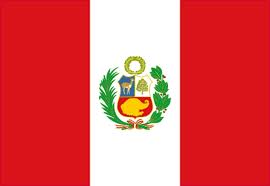 Pharmaceutical companies’ abuse of monopolistic position results in million-dollar overspending in public purchases.
Pharmaceutical companies’ abuse of monopolistic position results in million-dollar overspending in public purchases.
[Javier Llamoza and Ana Romero] Atazanavir is an antiretroviral, second-line medicine that is used to treat people living with HIV. In Peru, this drug is patented by Bristol Myers Squibb (BMS), ensuring exclusivity and a high price for the same in the national market. A related result of this situation is that Peru’s public health sector overspends approximately US$ 7.5 million annually, as the present patent on Atazanavir does not allow for the purchase of the generic product. In contrast, the generic version of this medicine is available in Bolivia, for example, and costs that country US$ 0.50 per 300mg tablet, while in Peru, an average of US$ 12.85 is paid for the original brand name (Reyataz tab 300mg ), 24 times more for the same product.
Current information suggests that there are at least six pharmaceutical companies in the world that offer generic versions of this drug. However, while BMS has facilitated a voluntary license to the Medicines Patent Pool (MPP) for Atazanavir, this is not available to all countries, including Peru. Reliable estimates reveal that if this license were available to Peru, it could save the country more than US$ 30 million from now until 2018, when the BMS patent expires.
Given these facts, Peruvian civil society organizations (CSOs) demand that the government of President Ollanta Humala grant a compulsory license to stop present practices in the country that force enormous overspending in public purchases of Atazanavir. Representatives of the Peruvian Patients and Consumers Network (RPPU); Health Action International (AIS); the Antiretroviral Medicines Supply Monitoring Launching Group (GIVAR); the Support Program for the Self-Help of Seropositive People (PROSA); Forum of civil society in health (ForoSalud) , and the Network for Globalization with Equity (RedGE) denounce the abuse of monopolistic position of BMS for its product Reyataz (Atazanavir).
Despite its high price in the past years, the consumption of Atazanavir has been growing in Peru, as evidenced by information obtained from the State Purchases Supervisory Office. This medicine enjoys exoneration from import duties and Value Added Taxes (VAT), a State strategy intended to reduce the commercial sales price of selected medicines such as Atazanavir in order to make these more affordable to patients and the health care systems. But, given the continued rate of consumption of Atazanavir, in the next four years the Peruvian State will have overspent approximately US$30 million, a figure which could increase given present trends. However, if the generic version of this medicine were acquired, total spending in the same period would total less than US$1.5 million.
As compared to a number of other Latin American countries Peru pays the highest price for Atazanavir, revealing, also, the absence of regulations in the Peruvian pharmaceutical market that allow for companies to impose the prices most convenient for them.
|
ATAZANAVIR PRICE TAB 300 mg |
|||
| COUNTRY | PRICE PPP |
PATENTED |
DATA PROTECTION |
| ARGENTINA |
8.91 |
YES |
NO |
| BRAZIL |
2.90 |
YES |
NO |
| COLOMBIA |
9.54 |
NO |
NO |
| MEXICO |
10.55 |
YES |
NO |
| PERU |
18.60 |
YES |
NO |
Source: Preliminary results for the study “Situation of Medicines with Intellectual Property Protections in Five Countries of Latin America.” 2013. The results are expressed in PPP (parity in purchasing power) in order to make prices comparable.
The Peruvian government should grant a compulsory license for Atazanavir, outlined in the Agreement on Trade Related Aspects of Intellectual Property Rights (TRIPs) and in Peruvian national legislation. Under these circumstances in which the medicine in question is in the public interest and/or the price of the same is too heavy a financial burden for the public health provider institutions to bear, such a license is legitimate.
Many countries have used the compulsory licenses in order to protect the public health, in this way achieving a reduction of up to 98% in the price of the medicine.The Peruvian and Andean laws view compulsory license as a legitimate right of the State. On the basis of this, the Ministry of Health should waste no time in declaring Atazanavir a public interest good and direct the National Patent Office (INDECOPI) to issue a compulsory license for Atazanavir. In this way, Peru would be in a position to access the comparable generic products that exist in the market at a lower cost to the State and in the interest of the public’s health.
Lima, April 2014
For more information please contact:
Javier Llamoza
Acción Internacional para la Salud – AIS
Avenida Ignacio Merino 1855 Int. 304 Lince
265 9543
javierllamoza@aislac.org
Ana Romero
Red Peruana por una Globalización con Equidad – RedGE
Jirón Río de Janeiro 373 Jesús María
4612223 – 4613864 anexo 27
www.redge.org.pe / redge@redge.org




